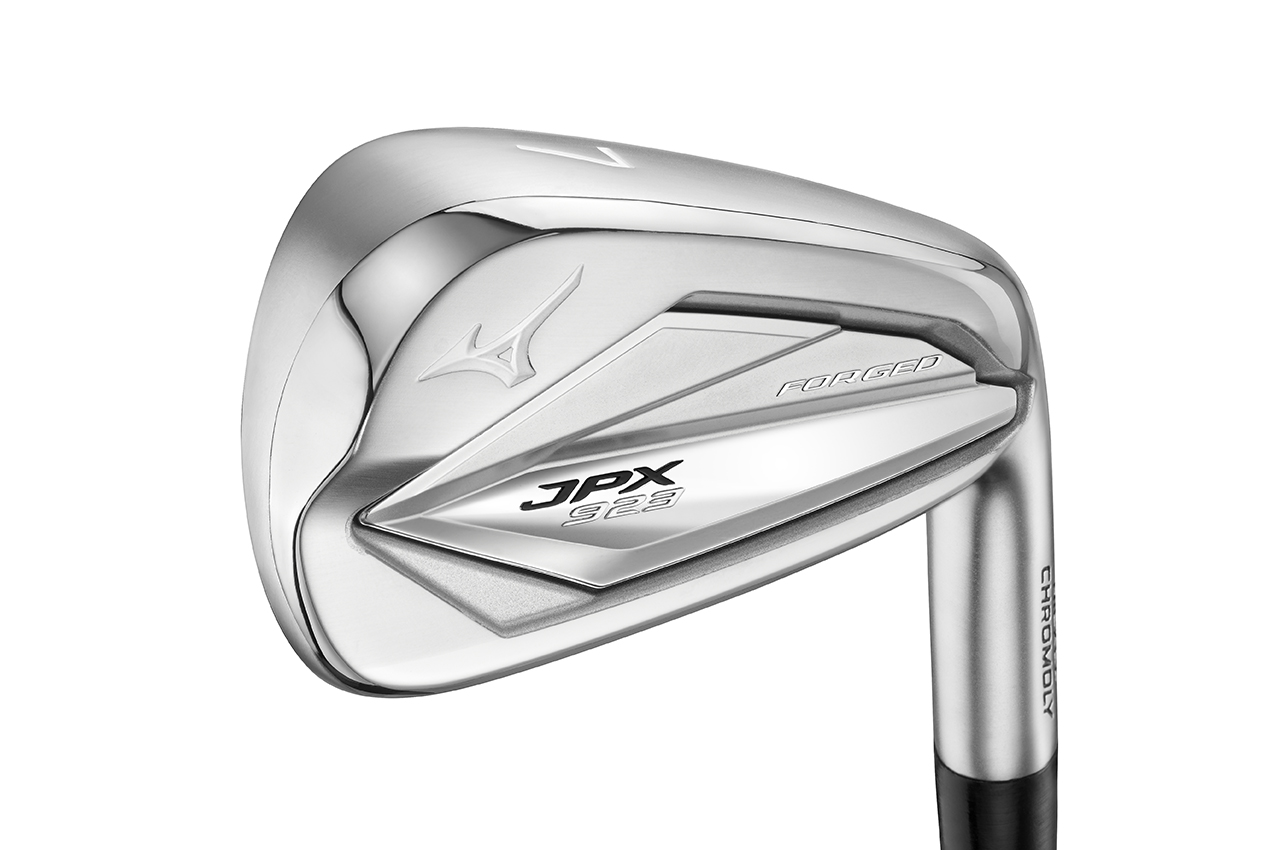Gear: Mizuno JPX 923 Forged irons
Price: $137.50 each
Specs: Grain-flow-forged 4120 Chromoly (4-7 irons) and 1025E mild carbon steel (8-GW) with milled micro-slot. Available in left- and right-hand versions. 4-iron through lob wedge
Available: Jan. 19, 2023 (pre-sale), Feb. 9, 2023 (in stores)
Who it’s for: Accomplished golfers looking for a compact cavity-back iron that emphasizes feeling and control with some forgiveness.
The Skinny: Made for players who may have played muscleback blades in the recent past and golfers who demand control and feel, the JPX 923 Forged irons bring some distance, forgiveness and playability to a better-player’s club.
The Deep Dive: Between game-improvement irons and muscleback blades, there is a region for golfers who are improving and looking for their first set of control-oriented clubs, as well as players who may have contended for the club championship a few years ago. Clubs in this category need to look like something that a real stick would carry but with hidden technologies and benefits.
For Mizuno, the JPX Forged has filled this gap for several years, and with the release of the 923 Forged, the Japanese company tipped this club closer to the better-player’s irons that have made Mizuno so respected. Designers worked to make this version longer and more forgiving than the JPX 921 Forged it replaces, but it appears smaller in the playing position.
To do that, Mizuno starts with a single billet of grain-flow-forged 4120 Chromoly for the 4-iron through 7-iron. By forging the metal under extreme pressure three times into the shape engineers want, the grains and strands of material elongate, which Mizuno said makes forged clubs feel better at impact. There is no vibration dampener designed into this club because golfers who will consider playing it want all the feedback – good and bad – that the clubs can deliver.
The face of the JPX 923 Forged is thinner in every area than the JPX 921 Forged, which should allow the hitting area to flex more efficiently at impact for increased ball speed on well-struck shots and mis-hits too. There is also a milled micro-slot in the sole that is covered by a very thin plating. The slot allows the lower portion of the face to flex more easily, which should deliver better performance on thin shots. The JPX 921 Forged had a micro-slot, but the slot in this updated version is wider.
 Mizuno JPX923 Forged 4-7 irons are forged 4120 Chromoly, while the 8-PW are forged 1025E mild carbon steel. (Mizuno)
Mizuno JPX923 Forged 4-7 irons are forged 4120 Chromoly, while the 8-PW are forged 1025E mild carbon steel. (Mizuno)
The 8-iron through gap wedge are also grain-flow-forged, but instead of Chromoly, Mizuno uses the same 1025E mild carbon steel found in the company’s muscleback blades. These scoring clubs have not been given a micro-slot.
To make its irons sound good at impact, Mizuno has studied harmonics for years and reinforced the topline of its clubs to create the type of vibrations that many golfers find pleasing. In some cases, that has forced designers to make the topline thicker, which accomplished players rarely like. In the JPX 923 Forged, the topline has more curvature, so it appears thinner in the address position while still reinforcing the hitting area.
The lofts of the JPX 923 Forged irons are stronger than those found in muscleback blades – the 5-iron is 24 degrees and the pitching wedge is 44 degrees – but by modern standards they are typical for a better-player’s distance iron.

